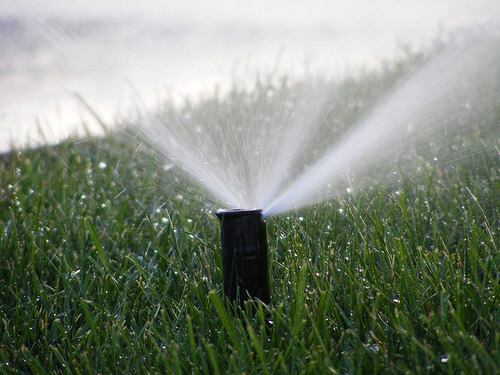
As the warmer weather moves in, your lawn and garden will require more water to stay healthy. Typically, all lawns need at least an inch of water each week. Along with making sure you’re using your irrigation system, hose or sprinkler in the most efficient way possible, there are a few other tips and tricks that can help reduce your water use outdoors.
Listen to Your Lawn: Some lawns need a good watering 4-5 times a week, while others are perfectly content with one good soaking per week.
Regardless of what watering method you use, you can easily save water by being attentive to your lawn’s needs. While you want to ensure the water is soaking down to the roots, you also want to avoid over-watering your grass. If your lawn is still very wet first thing in the morning, you can cut back a day of watering. If it’s quite dry, add a day. Take a week to really discern how much water your lawn needs to achieve that balance between overly dry and sopping wet for each zone of your lawn.
Timing: Paying attention to the clock when you water can be crucial. It’s best to water early in the morning so that the grass has time to soak up all the moisture throughout the day. Avoid watering in the middle of the day to avoid water loss due to evaporation from heat and wind. Watering at night could lead to disease or mildew.
Waste Not: Take a walk around while your irrigation system or sprinkler is running to confirm that it’s only hitting the lawn or plants. There’s no sense in watering sidewalks or houses!
Drip Irrigation: When it comes to watering trees and plants, drip irrigation is the way to go. It provides a very efficient way of watering, reducing the amount lost to evaporation by directing water straight to the root of the plant. Starting with a soaker hose is a great way to experiment with drip irrigation.
Rain Barrels: Setting up a rain barrel is a great option for recycling rainwater runoff from your roof to water your trees and shrubs. Just set the barrel up to collect water from a gutter and hook your hose up! There are a variety of options your can purchase, or you can even make your own.
Mulch: Mulching your planted areas will help retain soil moisture. When you notice your mulch getting low, refresh it with more mulch and/or compost.
Conserving water offers several benefits to you and your environment. In addition to reducing your utility bill, cutting back on water use is a great way to help minimize water pollution and save energy. Water smarter this year!

